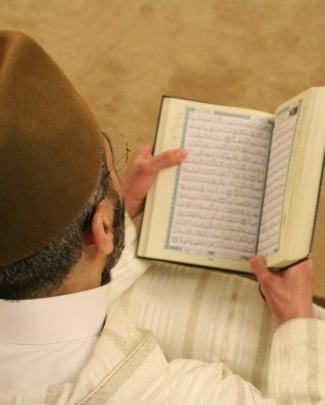ESTHER: A PURIM HERO FOR TODAY
HOUSE DEMOCRATS ASK BIDEN TO GIVE UP SOLE CONTROL OF NUCLEAR CODES
BISHOPS OPPOSE THE “EQUALITY ACT”
CRITICAL RACE THEORY: WHAT YOU CAN DO
WHAT A CHILD’S LIFE WILL LOOK LIKE UNDER THE EQUALITY ACT
ESTHER: A PURIM HERO FOR TODAY
Purim is certainly a joyous occasion in the Jewish household – complete with costumes, feasting, and drinking (until said costumes get snug and uncomfortable).
Of course, no celebration of Purim is complete without the traditional reading of the story of Esther. . . .
Ironically, despite being the namesake of the book, Esther’s (a.k.a. Hadassah’s) role is frequently disregarded. . . .
But to push Esther out of the limelight is to underestimate the power of the story.
She is one of the few, true heroines of the Tanakh. . . .
Here are a few things Esther went through:
1. She lived in exile.
Esther and a significant number of the Jewish people lived scattered throughout Persia after the Babylonian exile. Although they had been granted freedom to return to their homeland, many of the Jewish people stayed in exile rather than go back to a war-torn Jerusalem.
2. She was an orphan.
According to Scripture, Esther had no parents. She had lost both her father and her mother and was raised by her older cousin, Mordecai (Esther 2:7).
3. She was taken captive.
The Persian King, Xerxes (a.k.a. Ahasuerus), was displeased with his wife and sought her replacement. So, naturally, he made a decree in order to gather to himself all suitable virgins in the region.
So when the king’s order and edict had been proclaimed, and when many young women were gathered in Susa the citadel in custody of Hegai, Esther also was taken to the king’s palace and put in custody of Hegai, who had charge of the women. (Esther 2:8) . . .
4. She was raped. . . .
Now when the turn came for each young woman to go in to King Ahasuerus, after being twelve months under the regulations for the women, since this was the regular period of their beautifying, six months with oil of myrrh and six months with spices and ointments for women – when the young woman went in to the king in this way, she was given whatever she desired to take with her from the harem to the king’s palace. In the evening she would go in, and in the morning she would return to the second harem in custody of Shaashgaz, the king’s eunuch, who was in charge of the concubines. She would not go in to the king again, unless the king delighted in her and she was summoned by name.” (Esther 2:12–14)
The virgins, who were all quite young, were escorted to the king, who is said to have been approximately 40 years of age at the time. They were taken one by one, for him to sleep with. They didn’t return to the other virgins, but instead were added to the number of the king’s other concubines (a.k.a. sex slaves without wife status). No other man could ever be their husband, and they never saw the king again unless he was “pleased with them.” In short, the king test-drove all the models before making his purchase, and he “purchased” Esther to replace his former queen. . . .
5. She risked execution.
When Mordecai learns of Haman’s (the king’s advisor) plot to annihilate all of the Jewish people, Esther is pushed to center stage. Mordecai sends the queen a message, telling her to throw herself before the king and beg for mercy on behalf of her people. This wasn’t as easy as it may have sounded. Esther knew that anyone who approached the king without first being summoned was killed – unless the king was in the mood to extend his scepter and spare their life. What Mordecai was asking her to do could have easily been the last thing she ever did.
But Mordecai said: “Do not think to yourself that in the king’s palace you will escape any more than all the other Jews. For if you keep silent at this time, relief and deliverance will rise for the Jews from another place, but you and your father’s house will perish. And who knows whether you have not come to the kingdom for such a time as this?” (Esther 4:13–14). . . .
So Esther, Mordecai, and the Jewish people fasted and prayed. Then Esther went before the king.
Thankfully, the king held out his scepter. He heard her case and granted her requests. . . .
Esther wasn’t a cheerleader. She wasn’t Mordecai’s sidekick. By spending a moment focusing on Esther as an individual and addressing the very real and horrible things this woman of God endured, we are able to more clearly see her character and courage and God’s redemptive love at work in spite of the sins of man.
He chose a woman who had everything taken from her – her parents, her freedom, her virginity – and He gave her everything. He used someone who, due to gender, culture, and circumstance, was powerless and invisible and made her the pivotal, formidable heroine.
Esther’s story is a powerful reminder that God can bring about new life, redemption, and freedom, even when it seems an impossible feat.
“Behold, I am about to do something new; even now it is coming. Do you not see it? Indeed, I will make a way in the wilderness and streams in the desert.” (Isaiah 43:19). . .
(Excerpt from Jews for Jesus. Article by Rachel Friedlander. Photo Credit: Unsplash.)
What stood out to you most from this article? Discuss in the comment below!
Partner with Us
Intercessors for America is the trusted resource for millions of people across the United States committed to praying for our nation. If you have benefited from IFA's resources and community, please consider joining us as a monthly support partner. As a 501(c)3 organization, it's through your support that all this possible.


We use cookies to ensure that we give you the best experience on our website. If you continue to use this site we will assume that you are happy with it. Privacy Policy





Comments
What stood out to me most? The source of this article did. Jews for Jesus, Jesus for Jews, I bet Jesus loves this as He Himself breathed life into this movement. I quote from their website, “The concept wasn’t new—after all, Jewish people had been believing in Jesus since, well, Jesus!” A few years ago, I said, Merry Christmas to a business owner who replied, “I’m Jewish.” To him I replied, “how awesome, so is Jesus!” I have often thought about how greatly power and authority will shift on earth when His chosen believe. “And so all Israel will be saved…” Our Messianic Jewish brothers and sisters are perfectly placed for such a time as this…
I share their statement of faith….”We believe that Israel exists as a covenant people through whom God continues to accomplish His purposes and that the Church is an elect people in accordance with the New Covenant, comprising both Jews and Gentiles who acknowledge Jesus as Messiah and Redeemer. We believe that Jesus the Messiah will return personally in order to consummate the prophesied purposes concerning His kingdom.” https://jewsforjesus.org/about/statement-of-faith
Romans 11:26
Great post,awesome organization!